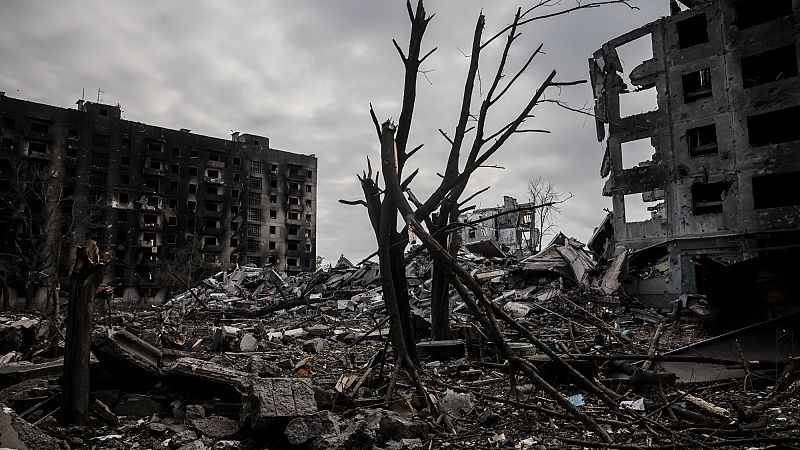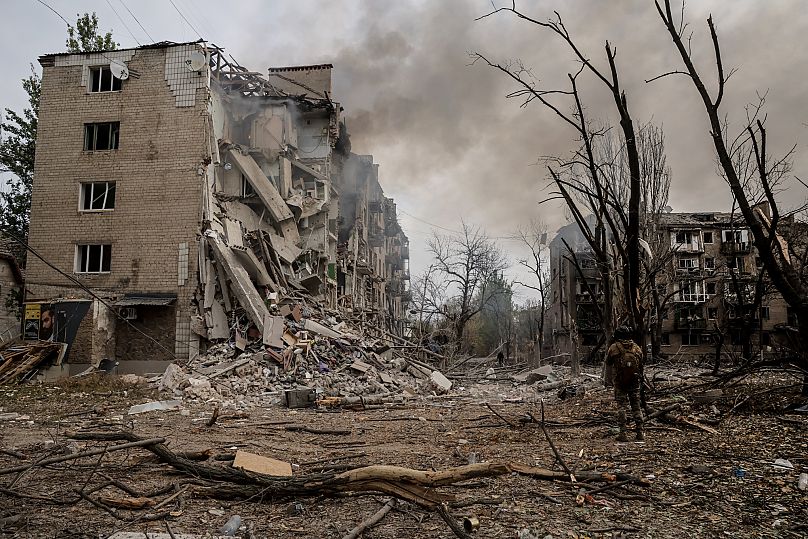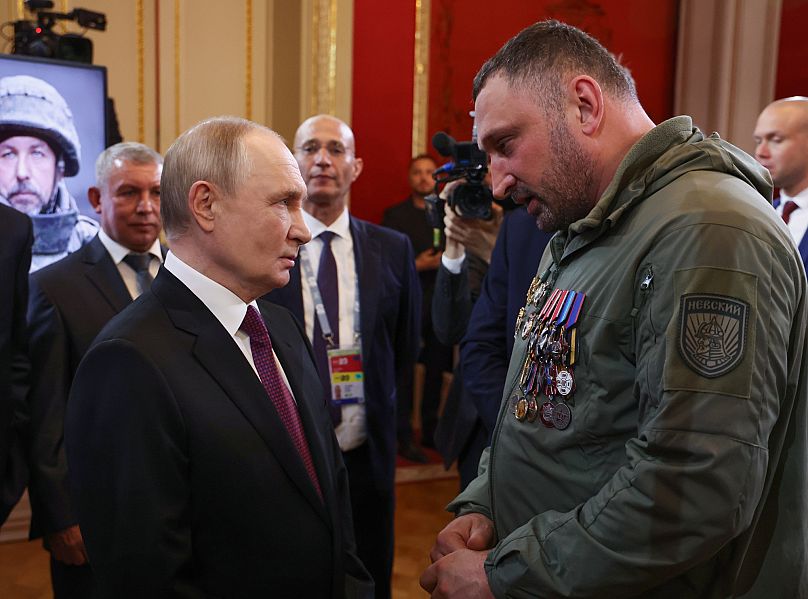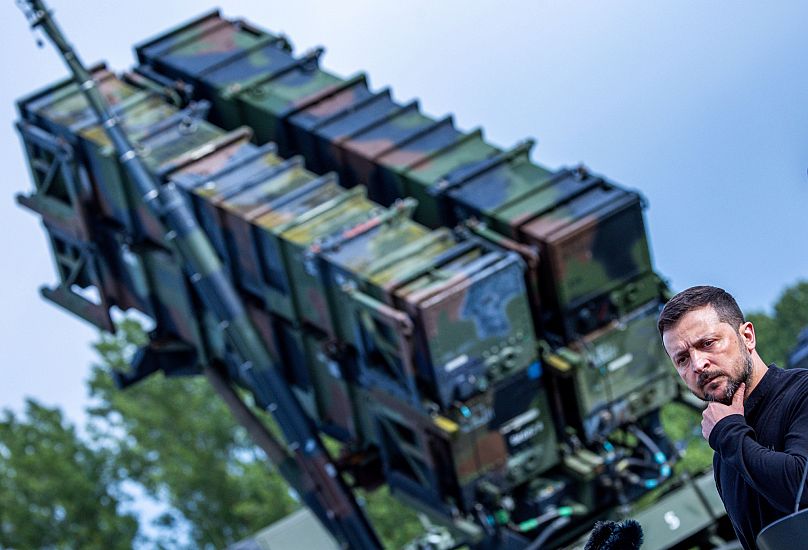Moscow's demands have not changed after Trump-Zelenskyy meeting, Kremlin says

The Kremlin has not changed its stance on the possibility of freezing the offensive along the current frontlines in Ukraine, Kremlin spokesperson Dmitry Peskov said on Monday when asked about the proposals allegedly voiced by US President Donald Trump.
"This topic was repeatedly raised in various forms during contacts between Russia and the US," Peskov said.
"The Russian side answered every time, this answer is well known: the consistency of Russia's position doesn't change."
Moscow already rejected the possibility of freezing its war at the current contact line, putting forward unrealistic maximalist demands in the past.
After meeting Ukrainian President Volodymyr Zelenskyy in the White House on Friday, Trump posted on his Truth Social account that he communicated the same message to both Zelenskyy and his Russian counterpart Vladimir Putin "it is time to stop the killing, and make a deal."
"They should stop where they are. Let both claim victory," he added.
Zelenskyy said he would consider the frontline freeze, but only if it was combined with the immediate ceasefire and negotiations with Moscow to put an end to Russia's full-scale invasion.
But this is not what Moscow wants.
What territories are in question?
The FT news outlet reported that during the phone call with Trump on Thursday, Putin made a new offer to Trump under which Ukraine would surrender the parts of the eastern Donbas region under its control in exchange for some smaller parts of the two southern frontline regions of Kherson and Zaporizhzhia.
Trump then reportedly pressed Zelenskyy to accept Russia's conditions for ending the war, warning that Putin had threatened to "destroy" Ukraine if it refused.
Trump later denied these reports on Sunday. Asked if he had told Zelenskyy that Ukraine must cede all of the Donbas region to Russia, Trump said no.
"Let it be cut the way it is. It's cut up right now. I think 78% of the land is already taken by Russia," Trump said.
The area in question is reportedly Ukraine's Donetsk region, which, together with Luhansk, makes up the Donbas — a large industrial area in eastern Ukraine.
Russia has been trying to take full control of it since the first invasion in 2014, but until today has been unable to fully occupy it.
This would have marked a shift in Moscow's earlier position when the Kremlin demanded full control over Crimea plus the full four regions that are only partially occupied now: Donetsk, Luhansk, Zaporizhzhia and Kherson.
According to Peskov's comments on Monday, this position has not changed and the Kremlin has not backed off from its maximalist demands.
After the meeting with Trump on Friday, Zelenskyy admitted that the most "sensitive and difficult" question was the issue of Ukraine's territories.
"For us it is essential, our land and our country, because it is part of our independence. It is about our sovereignty," he said.
But if Russia agreed to freeze its war at the current lines with the ceasefire and the direct peace deal talks – Kyiv would consider this option.
US weapons for Ukraine: No new missiles but more air defence?
On Monday Zelenskyy said Kyiv is looking to get 25 more Patriot air defence systems in a long-term arrangement with the US.
"In coordination with the relevant US agencies, we arranged discussions with defence companies regarding air defence systems, and we are preparing a contract for 25 Patriot systems," Zelenskyy said.
He also said that the proposed contract would be carried out over several years, "with different quantities each year." But Washington could speed things up, Zelenskyy said.
"The White House can change the queue if there is political will."
So far Ukraine has received at least seven Patriot batteries, provided by the likes of the US, Germany, the Netherlands and Romania, as well as the latest one from Israel, delivered at the end of summer.
The Patriot is one of the few air-defence systems in the world that can reliably shoot down incoming ballistic missiles.
Globally, around 180 of these systems are believed to be in operation, as reported by the International Institute for Strategic Studies in London.
About one-third belong to the US, which has deployed many to Europe, Asia and the Middle East.
Ukraine relies on Patriots to protect itself from Russia's intensified bombardments, which include hundreds of drones and missiles launched in waves within just hours.
Kyiv was hoping to get more weapons not only to defend itself, but also to strike Russia's launchpads. But Trump said he hopes Tomahawks would not be needed in peace efforts aimed at Putin and end the war.
"Hopefully, we'll be able to get the war over without thinking about Tomahawks", Trump said, adding that the US needs its Tomahawks and "a lot of other weapons that we're sending to Ukraine."
Today




